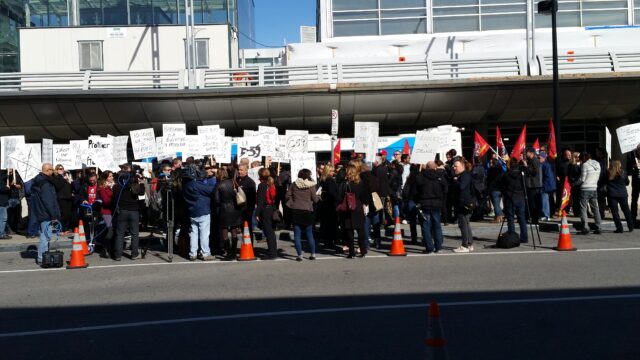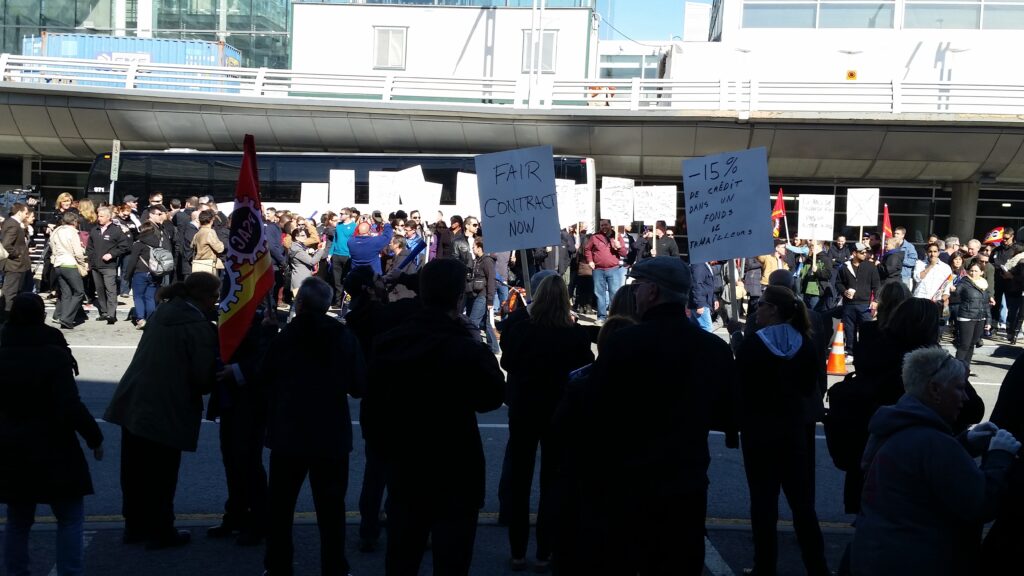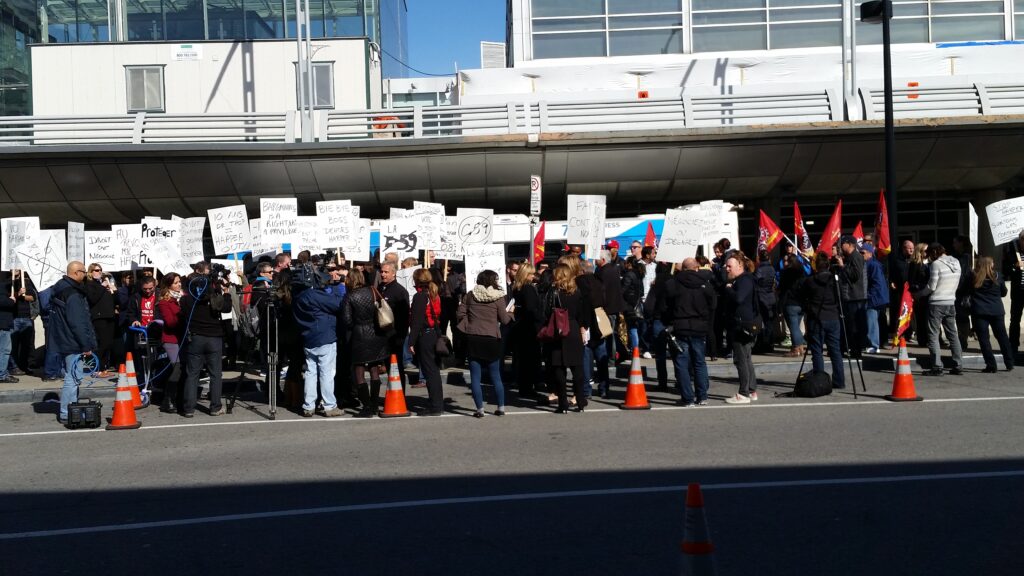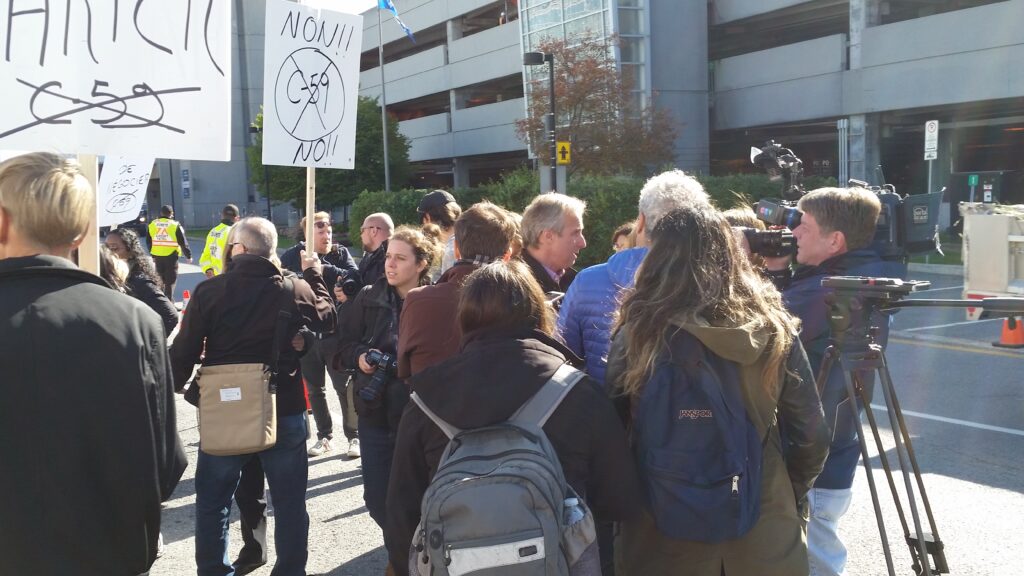FB Bargaining: “We Expect More from CBSA”
FB Team takes CBSA and Treasury Board to task over heavy-handedness of CBSA management.
Our PSAC/CIU Bargaining Team met with CBSA and Treasury Board in Ottawa this week to continue contract talks.
At the outset our Team raised with the employer that, in light of the ongoing disrespect shown by CBSA management towards PSAC/CIU members at CBSA – from rampant, frivolous disciplines to denied vacation leave requests to issues concerning hours of work at the local level – there will have to be new protections for union members in our next contract. We deserve respect for the work that we do.
Management rejected our proposal to beef up the legal indemnification policy and put it in the collective agreement. We told management that we are holding to our position, and that CBSA cannot be trusted to act in the interests of officers that may be subject to the legal indemnification policy.
The government’s proposal concerning our sick leave is fundamentally unchanged. Our position regarding sick leave is that we have no interest in agreeing to any concessions.
All PSAC tables proposed a general economic increase of 9.27% over a 3 year contract (3% per year) this week. This is in addition to the allowances that our team has proposed, and in addition to the market adjustment and other economic proposals that we’ll be making in subsequent bargaining sessions. Our objective is to achieve parity with the broader law enforcement community.
We discussed our proposed changes to the Workforce Adjustment Appendix. The Employer’s bargaining team had a significant number of questions about the Union’s proposals to which we will be responding at our next meeting. We reiterated our position against the contracting out of work. The Employer acknowledged that concerns about contracting out have been expressed by many unions in this round of bargaining.
We have a week of bargaining scheduled in June and are pushing for additional dates. We’ll be sure to update as things progress. For more information and to see our proposals and those of the government, please see the following page on the PSAC website.
Download the PDF version of this update (bilingual document).








